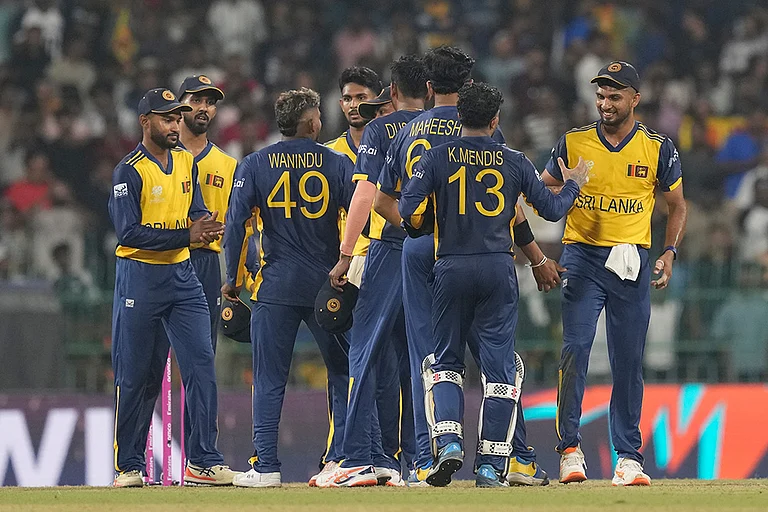Is it possible that the Congress party does not understand the damage it is doing to itself by harping on the failure of intelligence and the weaknesses and inadequacies in the armed forces exposed by the war in Kargil? Or is it that, having made its first mistake when it opposed President's rule in Bihar, the party is now locked into a course for self-destruction? On balance, the second seems the more likely. When it brought down the Vajpayee government, the Congress had no inkling that there was a war around the corner. It had even less of an inkling that India would win this war and, what's more, do so with time to spare before the next election. But it does remember what victory in '71 did for the Congress vote in the December '72 state assembly elections. It is therefore in a panic and that panic has clouded its collective mind. The fact that the cwc now contains at most three or four people who retain a mass base and are thus sensitive to what their voters feel may also have contributed to its insensitivity.
For, what it seems to have forgotten is that India won the Kargil war. The entire country is basking in the glow of a military achievement considered almost impossible by the defence establishments of the major powers and has sent respect for India's soldiers sky-high among those who understand what the campaign involved. How does the Congress think these people feel when they see a party that does not mind tarnishing the image of that victory in the hope of garnering a few votes from the exercise?
The Congress leaders justify their criticism saying that had it not been for the criminal negligence of Atal Behari Vajpayee's inexperienced government, the Pakistanis would never have secured the ridges. So 430-odd soldiers would not have had to die, another 700 have their futures blighted and 1,100 families left bereaved or facing an uncertain future. This may be true, but bringing this up now shows an incredible lack of sensitivity to the feelings of the bereaved. There are 400 fathers and 400 mothers out there who have suffered the worst fate that can befall a human being in old age-to see their child die while they still live. There are a slightly smallernumber of wives left widows, children whose fathers will never come home, pregnant wives who won't be able to share the joy of bringing their child into the world with the husbands who fathered them. What thoughts bring them solace, as they battle with their misery? There is only one-that their sons/husbands/fathers died fighting for their country and that they did not die in vain. If they begin to doubt this, it will make their loss unbearable.
The reaction that the Congress is likely to encounter if it even indirectly suggests this is therefore not gratitude but anger. The anger will be even sharper because their loved ones so patently believed they were risking their lives for the country's safety and the future of their families. The letter that Lt Vijayant Thapar, who died while recapturing The Knoll in the last days of the war, wrote to his family is eloquent of this, for it is suffused with the euphoria of martyrdom. It's one thing to read his words in the cold print, another to see them in his even, flowing handwriting with the lines straying slightly across the page, and to sense the even-tempered, caring and fun-loving person who wrote them. Thapar was hours, perhaps minutes away from leading an assault party that consisted of only 12 people. The topography and the need for surprise forbade anything larger. He knew that it was a suicide mission, one like so many others carried out almost routinely in Kargil. Thapar's letter shows that he never entertained a moment's doubt that he would die. We'll never know if he'd had a premonition or if he retained a hope that he might survive to destroy the letter later, but his letter showed his profound understanding of what his parents and siblings needed to know and believe, to bear the loss if he died. That is the solace that carping about the need for the Kargil war will deprive his family of.
It is not only from bereaved families that the Congress is likely to encounter hostility. The hostility will not even be confined to the 1.3-million-strong armed forces, but will infect the more than five million ex-servicemen. These people are immensely proud of the service they belonged to. And that means five million extended families-perhaps 50 million people. Congress leaders may also have forgotten that in India the military tradition runs strongly in families. Most of today's soldiers are the sons of ex-soldiers who share their pride, have schooled themselves in fortitude over a lifetime and are immensely proud of what their sons have achieved. Is this the time to sow the idea in their minds that the sacrifice was futile?
This doesn't mean that everything be swept under the carpet. But there is a time, place and purpose for post-mortems. The time is not when the wounds inflicted by the war are raw; the place is most certainly not the hustings and the purpose must never be to win an election. The armed forces have well-established procedures for appraising all military actions; they have the strongest of motives for being thorough and officers who fare badly in the review have a Redressal of Grievances Procedure, including, at the end, the right to go to court in defence of their reputation. They should be left to get on with the task themselves. Anything else would weaken the chain of command that we all profess that we wish to restore.
This doesn't also mean that the Congress should remain silent over Kargil. What it should be promising to do is take steps to ensure the army won't be starved of modern arms; that its primacy in choosing the weapons it will fight with will be restored; that the chain of command will be treated as inviolate and that the bureaucracy's tyranny, responsible for most of the flaws and demoralisation in the army, will be ended. That will get them the votes they crave.























